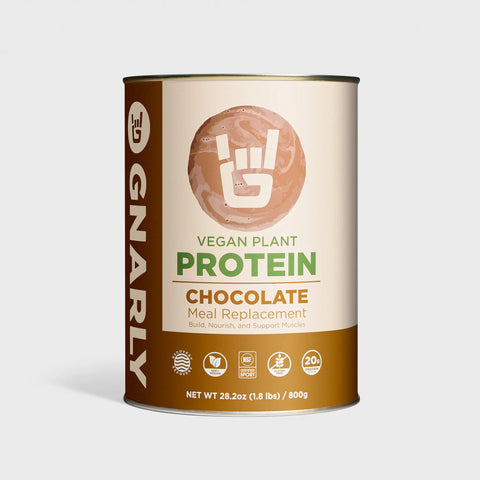Nutrition is important for both fueling your active lifestyle and pregnancy, which makes supporting an active pregnancy doubly critical! But did you know it’s also beneficial to support the pre- and postnatal stages, as well? Whether you’re hoping to become pregnant in the next six months, or you’ve just delivered a baby, there are a few nutrition considerations to keep in mind so that you are fully nourished and fueled to continue participating in your favorite sports before, during and after pregnancy.
Prenatal Nutrition
Many resources today suggest that all individuals of child-bearing age consume specific nutrients for overall health and the health of future fetuses in the early stages of pregnancy. This guideline is important for both people who are actively trying to become pregnant and for those whose pregnancies are a surprise.
Any person who can become pregnant should supplement with 400 micrograms of folic acid per day, especially in the three to four months before trying to conceive. This is the amount needed to support neural tube formation, which occurs in the first few weeks of pregnancy. Folic acid supplementation can help minimize major birth defects, including spina bifida and anencephaly. Folate (the naturally-occurring form of folic acid) can also be consumed in food, though it is only 50% bioavailable (i.e., absorptive). The best sources of folate include broccoli, brussels sprouts, leafy greens, peas, chicken, asparagus, eggs, oranges, and fortified foods. Supplementation along with a varied diet will supply folic acid/folate requirements to support a healthy pregnancy.
In addition to folic acid, meeting daily energy requirements is important in the prenatal stages. As an athlete, it is imperative that you consume enough calories, maintain a healthy weight for you, and nourish yourself regularly with wholesome foods. We expend energy during our activities, and it is vital that we nourish ourselves to maintain our own health but also to prepare the body if we’re hoping to become pregnant. You do not need to consume more calories than normal to become pregnant, though you may need to increase fat stores if they are too low. Low body fat has been identified as a potential contributor to poor fertility outcomes. This is due, in part, to low secretion of luteinizing hormone, which is largely responsible for stimulating ovulation (i.e., the release of an egg from the ovaries).

And let’s not forget: Partners, spouses and donors are 50% of the process! In order to produce healthy sperm, the diet and/or supplements must supply vitamin E, zinc, vitamin C, DHA (an omega-3 fatty acid) and CoQ10. A diet that incorporates a variety of fruits, vegetables, healthy fats, lean proteins, whole grains, legumes, nuts/seeds, low-fat dairy and minimal amounts of sugar provides sufficient micronutrients for sperm quality. A complete multivitamin may help fill in the gaps.
Diet also plays an important role for individuals undergoing in-vitro fertilization (IVF). According to a 2019 observational study by Sun et al., a Mediterranean-style diet improves pregnancy outcomes by supporting implantation rate and embryo yield. A Mediterranean diet (MD) is characterized by a high consumption of colorful fruits and vegetables, fatty fish, whole grains, nuts, seeds and olive oil and a low intake of dairy products, meats, processed sugars and alcohol. Adhering to a MD will support nutrient requirements.
Pregnancy Nutrition
A well-balanced diet, along with supplementation when appropriate, will help support pregnancy while minimizing complications, such as pre-eclampsia, premature birth and neural tube defects. Total energy and protein needs gradually increase throughout pregnancy. On average, the energy cost of pregnancy ranges between 80,000 to 110,000 calories, which is about 300 to 400 calories per day. However, needs vary by pregnancy stage. The Institute of Medicine recommends a weight gain of 25-35 pounds for individuals with a normal* BMI.
*A normal BMI is 18.5-24.9, but bear in mind that BMI isn’t an accurate indicator of healthy weight.
First Trimester
In the early stages of pregnancy, additional calories are not typically recommended. However, sufficient calories to support general energy needs are important, especially if you are still expending calories during training and exercise. Most clinicians recommend the addition of a prenatal multivitamin to ensure adequate intake of specific micronutrients. Of most concern are folic acid (requirements increase to 600 micrograms) and iron (27 milligrams).
Protein is also important if you are continuing your training during pregnancy. On average, the total protein cost of pregnancy is 1500 grams, which equates to 6 grams per day. General protein recommendations for pregnancy suggest 60 grams per day, but this value is fairly low if you are trying to maintain or build muscle. If you plan to continue a modified training protocol during pregnancy (per your doctor’s recommendation that it’s safe), you will need to increase protein consumption gradually throughout pregnancy to support muscle mass and the growing fetus.

If morning sickness is present, ginger is a soothing and safe supplement to take either in tablet form or as a tea. Many herbal supplements are considered contraindicated during pregnancy, so it is recommended that you request a full list from your doctor. Before beginning any herbal remedy during pregnancy, always consult with your doctor.
Gestational diabetes screenings should begin in the first trimester, especially if you have type 2 diabetes in your family history. Ask your doctor about regular screenings throughout your pregnancy.
Second Trimester
During the second trimester, energy requirements begin to increase. An additional 340 calories per day are recommended to support appropriate weight gain and energy needs. Similarly, protein intake should increase to meet needs.
Third Trimester
The third and final trimester is perhaps the most important time to increase calories and protein. An additional 450 calories per day will support energy needs. This is also an important time to re-test for iron deficiency anemia, as the third trimester is the most likely time for this condition.
Postnatal Nutrition
C-Section vs. vaginal delivery
Both delivery methods are very strenuous on the body. Take time off from heavy lifting and your normal workouts until your doctor suggests it is safe to return to your “normal” routine. Because of the wound-healing requirements involved in both delivery methods, an increase in calories is suggested to expedite recovery. You may consider eating similar amounts (or more!) as you were during your final trimester.
Lactation
On average, lactation burns 650 calories and requires 15 grams of protein per day. If you plan to breast feed, your diet will need to reflect the additional calorie and protein needs to support your health and milk production, flow and quality. Most micronutrient requirements increase during this time, especially calcium and vitamins A, C and D. Diversifying the diet and meeting energy needs is a good goal.
Weight loss during lactation: Extreme weight loss during lactation will jeopardize the nutrition of you and the baby while also reducing the nutritional quality of milk. A weight loss of 1-2 pounds per month during the first six months of lactation is considered safe.

A note on returning to a “Pre-Baby Body”
A heavy emphasis is placed on returning to a “pre-baby body” after giving birth. But childbirth is no easy task, and imposing strict diets and weight loss regimes on a recovering body is unnecessary and potentially harmful. Give your body time to recover and revel in your new role. Once you are cleared by your doctor to return to your normal workout routines, move into them slowly and acknowledge your limits. It may take time to return to your past performance level, which isn’t a bad thing! You can never go backwards, but you can move forward and hit new PR’s, new peaks and new milestones when it is safe to do so.
References
Horvitz West, E., Hark, L., & Deen, D. (2014). Nutrition in pregnancy and lactation. In L. Hark, D. Deen, & G. Morrison (Eds.), Medical Nutrition & Disease: A Case-Based Approach (5th ed., pp. 111-145). John Wiley & Sons, Ltd.
Sun, H., Lin, Y., Lin, D., Zou, C., Zou, X., Fu, L., Meng, F., & Qian, W. (2019). Mediterranean diet improves embryo yield in IVF: a prospective cohort study. Reprod Biol Endocrinol, 17: 73.





